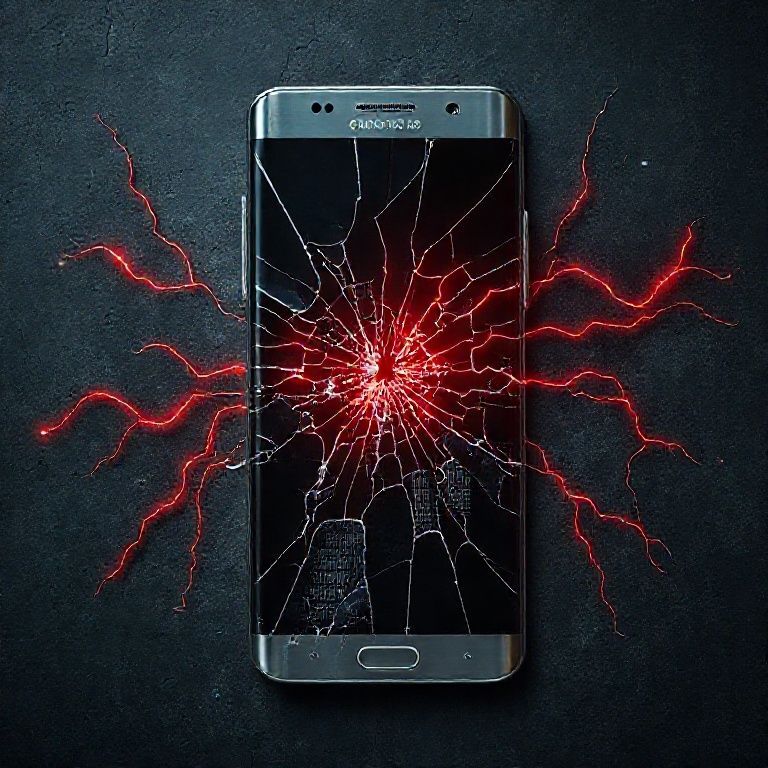You know how we’re constantly told to update our phones? Well, here’s a stark reminder why. I recently came across a report that’s got me thinking a lot about mobile security, especially for those of us rocking Samsung Galaxy devices.
The story, originally broken by The Hacker News, details how a zero-day vulnerability, CVE-2025-21042, was exploited to deliver a piece of sophisticated Android spyware called LANDFALL. Think about it: a flaw so fresh, there wasn’t even a patch for it yet, and attackers were already using it in targeted attacks in the Middle East. This isn’t some script kiddie stuff; LANDFALL is described as “commercial-grade,” which suggests serious resources and expertise behind it.
This flaw resided in the “libimagecodec.quram.so” component, basically a part of the phone’s system that handles image processing. It was an out-of-bounds write flaw, meaning the attackers could sneak code into areas of memory where it shouldn’t be, potentially taking control of the device. The CVSS score of 8.8 gives you an idea of how critical this was. It allowed the attackers to remotely execute arbitrary code.
This kind of attack is particularly scary because it’s a zero-click exploit, meaning the victim doesn’t even have to click on a malicious link or download a dodgy app. The phone is compromised silently, in the background. According to a 2023 report by Google’s Project Zero, zero-click exploits are becoming increasingly common and are often used in targeted attacks against high-value individuals like journalists, activists, and politicians.
The fact that this targeted Samsung devices is a worry. Android has a market share of 70.97% worldwide in November 2024 [source: statcounter.com], and Samsung holds a significant share of the Android market, it means a lot of people could be potential targets.
While Samsung has since issued a patch for this vulnerability, the incident highlights the constant battle between security researchers and cybercriminals. It also underscores the importance of staying vigilant and keeping your devices updated.
Key Takeaways:
- Zero-day exploits are a real threat: Even the biggest tech companies can have undiscovered vulnerabilities that can be weaponized.
- Updates are crucial: Patching security flaws is the best defense against these types of attacks. Enable automatic updates if you haven’t already!
- Commercial-grade spyware is getting more accessible: This means even small-time cybercriminals could potentially gain access to sophisticated tools.
- Targeted attacks are on the rise: If you’re a journalist, activist, or in a position of power, you need to be extra careful about your online security.
- Mobile security is just as important as computer security: Our phones hold a lot of sensitive data, making them prime targets for attackers.
FAQs
-
What is a zero-day exploit? A zero-day exploit is a vulnerability in software that is unknown to the vendor. This means there is no patch available to fix it, making it particularly dangerous.
-
What is LANDFALL spyware? LANDFALL is a commercial-grade Android spyware used in targeted attacks. It can potentially give attackers access to your messages, contacts, location, and other sensitive data.
-
Which Samsung devices were affected by this vulnerability? The article doesn’t specify the exact models affected, but it targets Samsung Galaxy Android devices. It’s best to check Samsung’s security bulletins for a list of affected devices.
-
How can I protect myself from this type of attack? The best protection is to keep your device updated with the latest security patches. Also, be cautious about clicking on suspicious links or downloading apps from untrusted sources.
-
How do I know if my phone has been infected with LANDFALL? It’s difficult to tell without technical expertise. Look for unusual behavior, such as excessive data usage or apps you don’t recognize. If you suspect your phone is infected, consult a cybersecurity professional.
-
What does “out-of-bounds write” mean? It’s a type of programming error where a program writes data outside of the allocated memory buffer. Attackers can exploit this to inject malicious code and gain control of the device.
-
Is this vulnerability still a threat? Samsung has released a patch to fix CVE-2025-21042, so if you’ve updated your device, you’re protected. However, it’s important to stay vigilant about future vulnerabilities.
-
What is a CVSS score? The Common Vulnerability Scoring System (CVSS) is a standardized way to measure the severity of security vulnerabilities. A score of 8.8 is considered high severity.
-
What are the implications of commercial-grade spyware being used in these attacks? It indicates that these tools are becoming more readily available, making it easier for attackers to launch sophisticated attacks, even without extensive technical skills.
-
What should I do if I suspect I’ve been targeted by this spyware? Immediately disconnect your device from the internet, back up your important data (if possible), and perform a factory reset. Consider seeking help from a cybersecurity expert for a thorough investigation.

